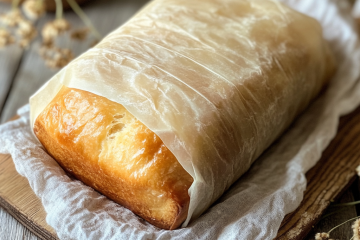 Many individuals I speak with about emergency preparedness are concerned of the cost of getting prepared and the amount of space they have to store everything. Today’s article is just one way you can be successful at improving your state of preparedness without being paralyzed by cost or space.
Many individuals I speak with about emergency preparedness are concerned of the cost of getting prepared and the amount of space they have to store everything. Today’s article is just one way you can be successful at improving your state of preparedness without being paralyzed by cost or space.In the fall, garden seeds are typically marked down dramatically. Are these safe to buy and store without immediately planting them in the ground? Well, usually, the answer is yes. I’ll clarify in a moment. Obviously, paying 70% off the original price of seeds is a bargain most can’t walk away from, and the space necessary to store seeds isn’t cumbersome even in a New York City apartment.
So how do you know when the seeds you buy off-season are going to do you any good in years to come, you ask? Ask the store supervisors how the seeds were stored. If they were displayed all summer out in the hot sun, then you’ll need to move on to another bargain. However, if they were stored in the store, or in the store greenhouse area the majority of the time, then you can be safe to purchase and store them for at least another 5 to 10 years. Even better is if you can store them individually packaged but in a larger container to prolong freshness. The key is for you to store them in a cool, dark and dry place. It was a way of life for our ancestors – they stored and traveled with seeds regularly. “Hey honey, be sure to grab the kids and the seeds. The mammoth is leaving soon.” Don’t let the modernization of a greenhouse throw you off your instincts.
Seeds are full of great nutrition as sprouts. An added bonus with this practice is if your seeds do sprout, then you know they are good and nutritious. In fact, in some cases, the sprouted seeds are MORE nutritious sprouted than as full grown plants, though perhaps not as enjoyable to eat. So, if you’re in doubt, prior to planting seeds in the typical manner, take a few and sprout them indoors. Sprouting typically involves water, some cheesecloth, and a small mason jar. Think about it – in an emergency, you’re not exactly going to have time to plant your seeds and then wait for the harvest if you’re starving and other food supplies are cut off. Some seeds take only 24 to 48 hours to sprout. As long as you have water (see my last blog) you’ll be able to survive that long without food while you’re waiting for the sprouts to develop.
 And while I’m on the topic of sprouts, even though it’s a bit off topic of saving space, dried legumes and wheat grains are EXCELLENT sprouting resources. They are also quite easy to sprout and their nutritional value is dramatically compounded in this state. Additionally, wheat grains and dried legumes store for extremely long periods of time in a cool, dry, dark space, and the sprouting is virtually effortless. (In fact, my husband and I accidentally sprouted some lentils in our basement when we didn’t completely clean up a spill. Some of the seeds had fallen down a drain pipe next to the water heater and sprouted soon after with nothing but moisture — no light.)
And while I’m on the topic of sprouts, even though it’s a bit off topic of saving space, dried legumes and wheat grains are EXCELLENT sprouting resources. They are also quite easy to sprout and their nutritional value is dramatically compounded in this state. Additionally, wheat grains and dried legumes store for extremely long periods of time in a cool, dry, dark space, and the sprouting is virtually effortless. (In fact, my husband and I accidentally sprouted some lentils in our basement when we didn’t completely clean up a spill. Some of the seeds had fallen down a drain pipe next to the water heater and sprouted soon after with nothing but moisture — no light.)
So I say take advantage of the seed sales you get at the end of the summer and in early fall. They are typically every bit as good and will store quite well. Whether you want edible vegetables and flowers, or showy foliage, go ahead and save a bundle of money! The space you save on “food storage” is great as well.



6 Comments
farmersdaughter1 · January 14, 2009 at 5:12 pm
Kellene, Your message is awesome! Thanks, your information is right on target. We bought some of those buckets for our kids for Christmas this year as a jump off to their own program and I will continue hounding them about the importance of “real food storage”. I’m looking forward to more of your articles. JB
farmersdaughter1 · January 14, 2009 at 5:12 pm
Kellene, Your message is awesome! Thanks, your information is right on target. We bought some of those buckets for our kids for Christmas this year as a jump off to their own program and I will continue hounding them about the importance of “real food storage”. I’m looking forward to more of your articles. JB
Kellene · January 15, 2009 at 6:53 am
Glad to see you liked it. We’ve got an entire year’s worth planned thus far…maybe more.
Keep up the great work and keep pushing those kids. 🙂
Kellene
Kellene · January 15, 2009 at 6:53 am
Glad to see you liked it. We’ve got an entire year’s worth planned thus far…maybe more.
Keep up the great work and keep pushing those kids. 🙂
Kellene
Barbara · August 9, 2009 at 12:31 am
A note on the seeds, if they have been pretreated for gardening they would not be safe to eat. I think I remember reading that on another post but thought I would reiterate it here. I have purchased seeds at the end of the season and had good results growing them later. They are amazing little bundles of life.
Barbara · August 9, 2009 at 12:31 am
A note on the seeds, if they have been pretreated for gardening they would not be safe to eat. I think I remember reading that on another post but thought I would reiterate it here. I have purchased seeds at the end of the season and had good results growing them later. They are amazing little bundles of life.
Comments are closed.